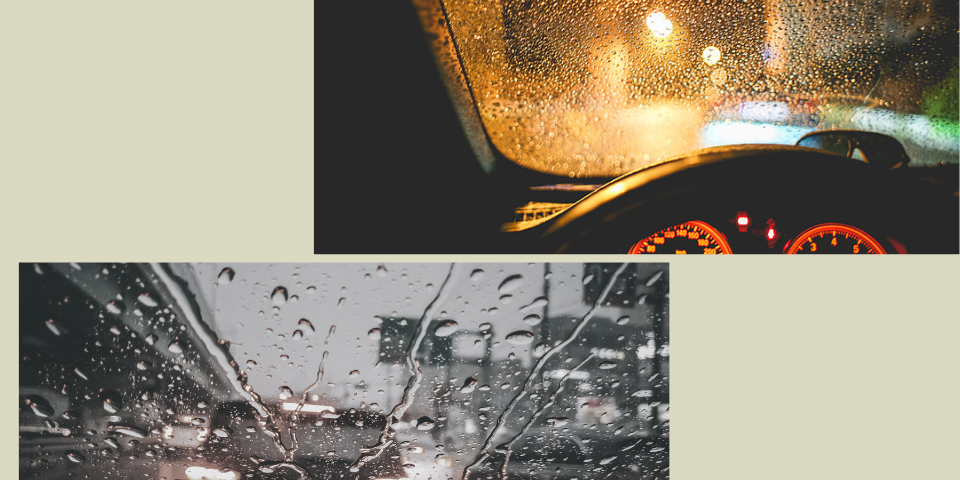Does car insurance cover water damage from rain

Why is rental car insurance so expensive?
November 10, 2023
How to cancel your current car insurance
November 27, 2023Table of Contents
ToggleDoes car insurance cover water damage from rain?
Yes, car insurance typically covers water damage from rain if you have comprehensive coverage. Comprehensive coverage protects your vehicle against a wide range of perils, including weather-related damage.
Comprehensive car insurance takes care of different types of harm to your vehicle that doesn’t result from a crash, and this includes damage from rain. This is because rain can lead to sudden and unforeseen problems for your vehicle, like flooding, hailstorms, or tree branches dropping onto your car. If any of these issues cause damage to your vehicle, comprehensive coverage steps in to pay for the repairs or a replacement. The only thing you need to cover initially is your deductible, and then the comprehensive coverage handles the rest of the expenses.
Does car insurance cover water damage from sunroof leak?
Yes, car insurance typically covers water damage from a sunroof leak if you have comprehensive coverage. Comprehensive coverage protects your vehicle against a wide range of perils, including weather-related damage and damage from other covered events, such as vandalism or theft.
However, there are some exceptions to this rule. For example, if the sunroof leak is caused by wear and tear, such as the seals around the sunroof becoming worn or damaged, your insurance may not cover the damage. Additionally, if you are found to have been negligent in maintaining your sunroof, such as by not cleaning the drains or not closing the sunroof properly, your insurance may also deny your claim.
If you are unsure whether or not your car insurance covers water damage from a sunroof leak, you should contact your insurance company to speak with an agent. They will be able to review your policy and determine what coverage you have.
Will insurance cover water in engine?
Whether or not your car insurance will cover water in your engine depends on the cause of the water damage and your specific policy coverage.
Comprehensive coverage typically covers sudden and accidental damage to your vehicle, including water damage. This means that if your engine is damaged by water from a covered peril, such as flooding, hail, or a collision, your insurance should cover the repair or replacement of your engine.
However, if water damage in your car is due to a mechanical issue like a blown head gasket or a cracked engine block, your insurance won’t cover the repairs. Mechanical problems are seen as part of regular maintenance, and insurance is designed for sudden and unexpected incidents.
There’s an option to buy extra coverage that includes protection for mechanical failures, but it’s often more expensive, and not all insurance companies offer it.
To clarify, here are some instances when car insurance will or won’t cover water damage in your engine:
Covered:
• Your car’s engine is submerged in floodwater.
• Hail damages your car’s engine area, allowing water to get in.
• A tree branch falls on your car, breaks the windshield, and lets water into the engine area.
Not covered:
• You drive through a deep puddle, and water enters the engine.
• Your car’s engine coolant leaks, causing water damage.
• Neglecting to change your car’s engine oil results in engine damage and water leaks.
If you’re unsure whether your insurance covers water damage in your engine, it’s best to reach out to your insurance company and discuss the details of your policy with them.
Will insurance cover a Hydrolocked engine?
Typically, car insurance won’t cover a hydrolocked engine. This happens when water gets into the engine’s combustion chamber, restricting the movement of the pistons. It can lead to significant engine damage, and comprehensive car insurance usually doesn’t include coverage for this specific situation.
Hydrolocked Engine
Comprehensive car insurance is designed to cover damage to your vehicle caused by sudden and unforeseen events, such as collisions, theft, or vandalism. However, hydro locking is typically considered to be a maintenance issue, as it is often caused by the driver driving through deep water or failing to properly maintain the vehicle’s air intake system.
- If your engine gets hydro-locked, you’ll probably have to cover the repair expenses on your own. However, there are some steps you can take to reduce the risk of hydro locking in the future:
- Steer clear of driving through deep water.
- If you have to drive through deep water, go slowly and take your time.
- Regularly maintain your vehicle’s air intake system to ensure it’s in good condition.
- If you suspect your engine is hydro-locked, don’t attempt to start it. Instead, call a tow truck and have your vehicle taken to a mechanic.
Does car insurance cover leaking sunroofs?
If your car insurance covers a leaking sunroof depends on why it’s leaking.
Covered:
• If the leak is because of bad weather (like hail or heavy rain), vandalism (someone breaking the sunroof), or a theft attempt, your insurance will likely pay for the fix.
Not Covered:
• If the leak is because the sunroof is old and worn out, or you haven’t taken good care of it, your insurance might not cover the repair. You’d have to pay for it yourself.
Signs your sunroof might be leaking:
• Water dripping from the roof inside your car.
• Wet spots or stains on the seats or floor.
• Hearing water sloshing around when you’re driving.
• The sunroof doesn’t close like it should.
If you notice these signs, it’s important to have a mechanic check your sunroof to figure out what’s wrong and how to fix it.




